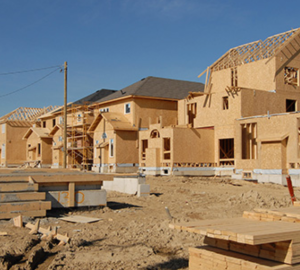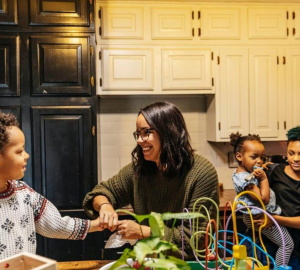Securing a home can be a challenging endeavor, yet the current trend indicates a higher probability of successful home acquisition when purchasing with a co-buyer. A recent study by the real estate firm Opendoor reveals that an overwhelming 77% of first-time home purchasers opt to buy their properties in collaboration with another individual. These co-buyers are often spouses or partners (accounting for 61%), followed by parents (16%), friends (11%), and occasionally siblings (7%).
In the present housing market, purchasing a home independently is not merely difficult but often unfeasible, particularly in numerous markets where it’s not a viable choice. Zillow’s research underscores this point, highlighting a significant increase in the income required to secure a home compared to just half a decade ago. While in 2020, a household income of $59,000 was sufficient to comfortably afford an average U.S. mortgage, the necessary income has risen to $106,500 in the present day.
Despite the wage hikes observed during the COVID-19 pandemic, the current earnings are frequently insufficient. For context, a 2020 income of $59,000 was beneath the median household income, which stood at $66,000. In contrast, the median household income has since risen to $81,000, yet the required income for home purchasing has surged past this figure to $106,500.
The contemporary dilemma is not whether to engage in a joint home purchase, but rather how to navigate this process without causing strain on interpersonal relationships.
1. Anticipating the End from the Start
Contrary to some beliefs that addressing the eventualities of property ownership could jeopardize the process, many individuals overlook the implications of one party wishing to relinquish their ownership share for any reason. Real estate professional Melissa Rubenstein, a sales associate at Corcoran Infinity Properties in Alpine, New Jersey, emphasizes the necessity of legal consultation. She advises that all parties involved in a joint purchase should have a document detailing their rights, which is particularly crucial for those not in a legal marriage. The document should address potential occurrences such as death, as inheritance laws vary by state and not all will automatically transfer property rights to a spouse, let alone a non-spouse, without documented agreements. Other scenarios like divorce, amicable separation, or job relocation should also be preemptively discussed to avoid future disputes.
2. Navigating Financial Discussions
Prior to engaging in conversations about the type or location of a prospective home, it is essential to establish open and effective communication about finances. The inability to discuss monetary matters can lead to significant complications and may even prevent the purchase from proceeding. Laurie Wilson, a marriage and family therapist at Rize Counseling in Huntington Beach, California, encountered this challenge when purchasing a home with her spouse. They had to develop a mutual understanding of their respective perspectives on money before they could proceed.
Wilson explains that recognizing each other’s emotional responses to money is key to avoiding conflicts. She suggests that couples should practice budgeting together before taking the plunge into homeownership. This less committal exercise can help uncover and align each person’s financial comfort levels. Wilson cautions that if a couple experiences discord or communication difficulties over finances during budgeting, it could be a red flag for potential issues when it comes to managing shared property expenses.
3. Pause for Reflection During the Home Search
It’s quite common for co-buyers to have divergent views on the ideal home, leading to disagreements on what constitutes their dream residence. Real estate professionals often suggest creating a list of desired and essential features to serve as a foundation for finding a mutually agreeable property. However, deadlocks can occur where consensus seems unattainable.
Bryson Taggart, a senior agent growth manager and licensed real estate agent at Opendoor in Phoenix, advises that if co-buyers are unable to reach a consensus, it’s wise to temporarily halt the purchasing process and re-evaluate at a later time. He emphasizes the importance of setting a clear duration for this pause, whether it’s a weekend, a few weeks, or a month, while still staying informed about new listings to avoid missing out on a property that could meet both parties’ criteria.
Taggart suggests that a brief period of reflection and dialogue between co-buyers can often resolve differences and realign their perspectives. Like other experts, he stresses that robust and clear communication is crucial for a successful real estate partnership.
4. Broadening Your Perspective on Home Choices
A frequent challenge faced by buyers, as noted by Rubenstein, is a lack of familiarity with the variety of home types available, which can complicate the search for a suitable property. She advises against confining one’s vision to the familiar concept of a neighbor’s home and instead encourages considering the home as a shared space with one’s co-buyer.
Rubenstein recommends exploring a range of home styles within the budget, even those that may not initially seem appealing. This can lead to unexpected positive discoveries or at least a better understanding of the options available within one’s financial reach. She also notes that the selection process often transcends the initial lists of preferences and requirements. According to her, when the right home is found, both parties typically experience an instinctive mutual agreement, recognizing it as their future home beyond the confines of a checklist. It’s about an intuitive feeling of belonging rather than a mere compilation of desired features.




